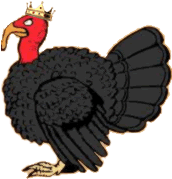Last night there were three of us at the polyglot chat group, which I’ve renamed Bangor Language Learners and which now at different times in a different venue. When I set up the group earlier this year my idea was that it would give me and other polyglots a chance to get together to chat in a variety of languages. Some weeks there have been enough of us to have several different conversations in different languages, other weeks there have been only a few of us and we have talked mainly in English, or in other languages we all had in common, like Welsh or German.
During the summer quite a few of the regular attendees were away and the meetings petered out. Then with the start of a new academic year I thought I’d change the focus of the group and make it for anybody who is learning a language, rather than just people who already speak several languages. After discussion on Facebook we came up with better days and times and so far we’ve had two meetings, which have gone well. Last night, for example, there were three of us and we spoke mainly in Welsh and French, which are the languages we have in common, along with English. I’m hoping numbers will increase as more people hear about it.
After the language learners group last night, I went to Global Café, a group run by Bangor University Christian Union which aims to bring together international and local students, and others. I started going to it while I was a student, and have been going on and off since then, though haven’t been regularly for a few years as it clashed with the ukuele club. The ukuele club has now moved to another night and I can go to Global Café again. It’s a great way to meet people from many countries and to practise a variety of languages – as well as English I spoke Mandarin, French, German, Spanish and a bit of Italian, Cantonese and Hungarian last night. I really enjoy opportunities like this. Is there anything similar in your area?
